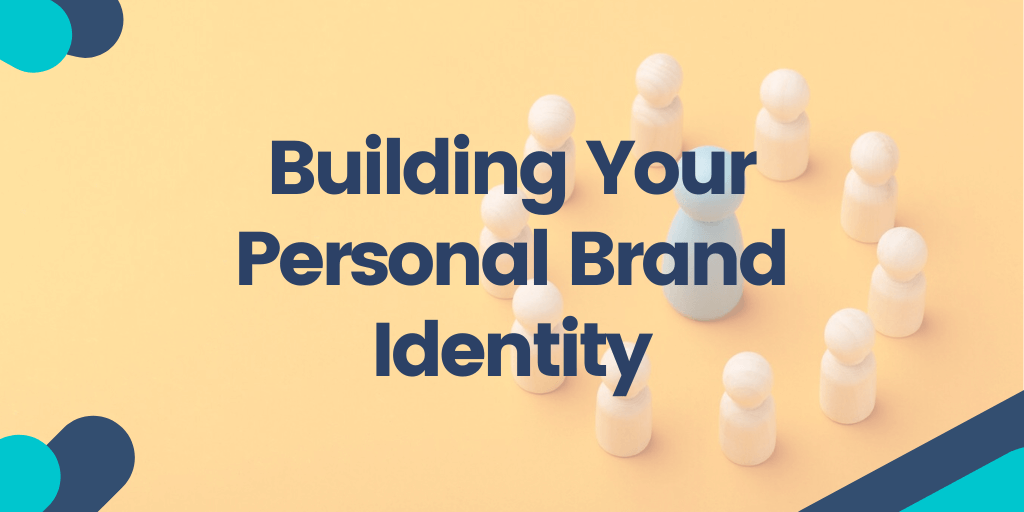We are living in times when anyone with access to the Internet and social media has a chance to build an audience, start attracting people to their business, and become an influencer. And that’s exactly what a lot of us are already doing. If you are on your way to developing a personal brand, you’ll definitely like this article. Keep reading.
Contents
Why do you need a personal brand?
For those who are in doubt, it's important to understand the benefits of having a strong personal brand.
If designed and executed properly, personal brand development tactics will result in the following things:
The authority and respect
Having a personal brand helps create authority and trust with your audience. If you are a freelancer or looking for a job, your personal brand can also serve you well. You can quote and mention your content ideas in professional life. Undoubtedly, a marketing manager with good-performing blog posts is much more likely to get a job or seal a deal.
The undeniable expertise
All your achievements are always going to be online, showcasing your personal experience and expertise, which can open up numerous career opportunities without the need for constant validation, making you more attractive to potential employers.
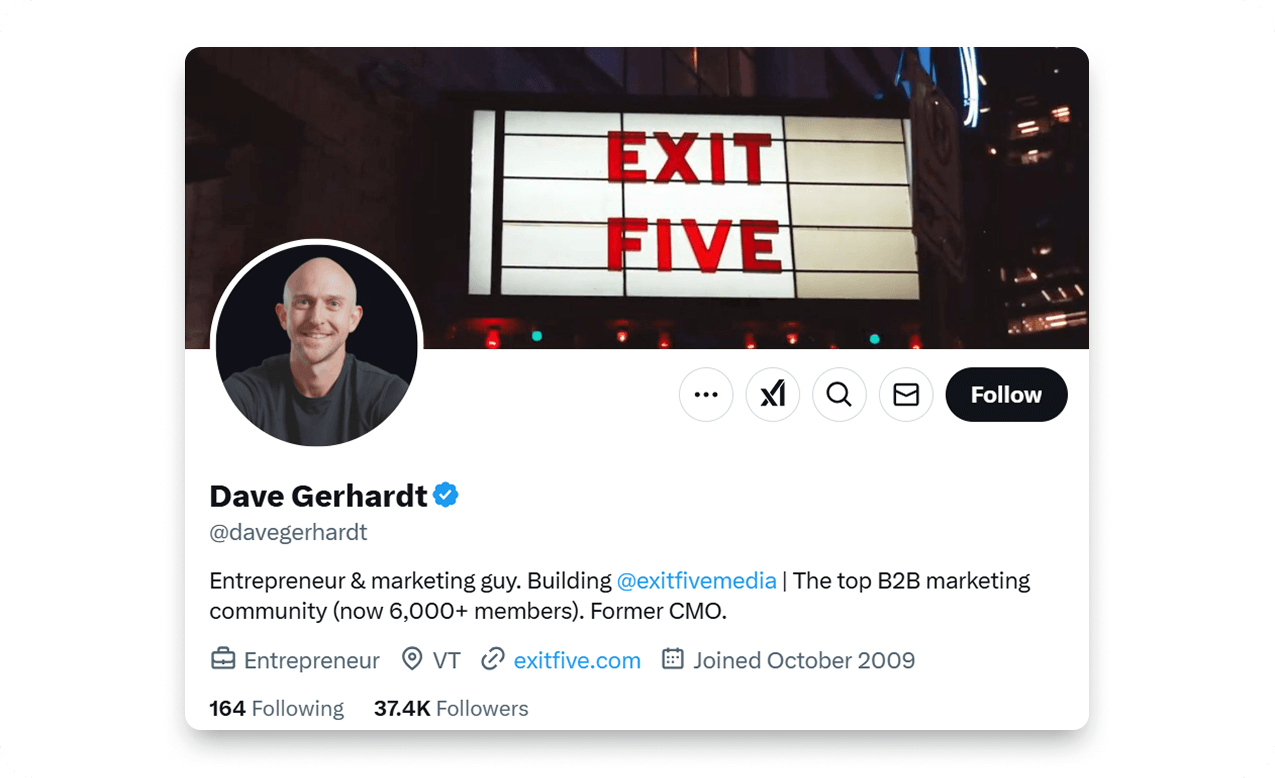
The ultimate attraction
People will more likely want to buy a product from someone with personal experience rather than from a faceless company. A strong leader in the field can significantly enhance their branding effort and foster deeper connections with their audience.
The network
When you have a personal brand, you can easily explain to people who you are, what you stand for, the values you embrace, and how you can help. This clarity fosters a personal connection with your audience and enables you to expand your professional network through various social channels more effectively.
The influence you make
Being an influencer today belongs to the most effective ways to bring your business to a higher level. By cultivating your personal brand, you can foster meaningful connections and a level of trust with your audience that is crucial for effective influencer marketing.
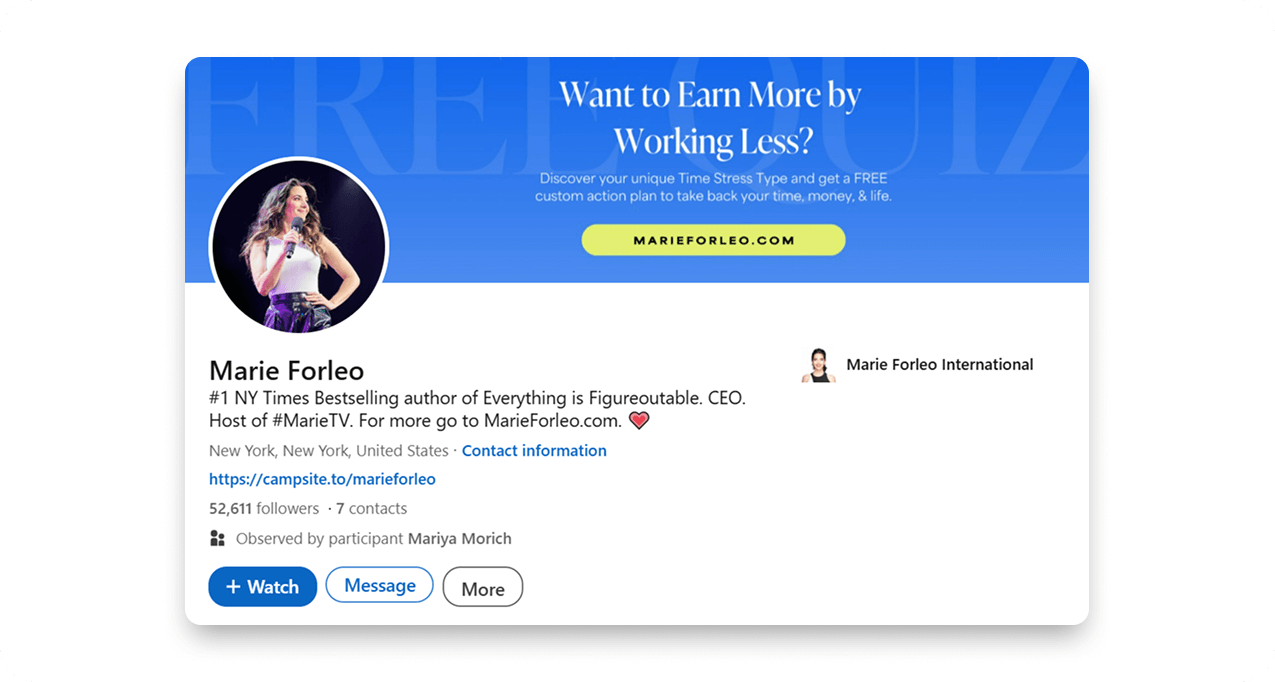
The personality of yours
People will associate everything you do in your personal life with your personality. This connection simplifies the process of building certain aspects without needing to explain the reasoning behind them.
The price of your service
Personal branding can significantly influence the price you can set for your product or service. The more developed personal brand you have, the more people trust you and are ready to pay more to buy from you.
The content control
When you have a well-established personal brand, it can guide you toward the type of content you should share with your potential audience to make an impact and get the desired results. Often, social media influencers can promote content that doesn't match their niche, but the audience still likes it because of the person who shares it.
The full visibility
The more people know and follow you, the more chances your original content gets to be seen (because people will share it).
YYou might also like: “What Is Branding And Why Is It Important For Your Business Growth.”
How to create a personal brand?
Now that you understand the benefits, let's take a closer look at the essential steps you should take if you want to develop a strong personal brand.
Step #1: Understand your personal brand definition
At this stage, try to find answers to the following questions.
Who you want to be for the world?
How do you want to look in the eyes of your audience? Are you a serious businessperson or a cheerful travel blogger?
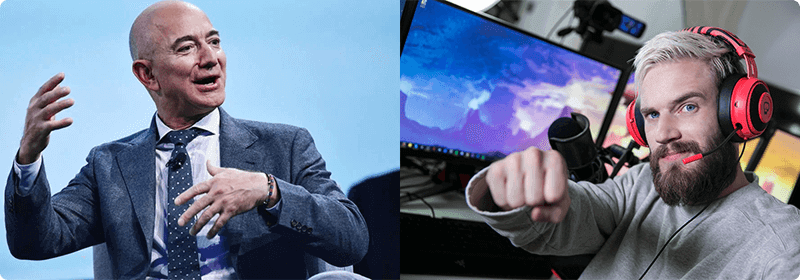
sources: essentiallysports and time
What work do you want to highlight?
Think about your interests, passions, and core values. Decide what brings you joy, what you are the best at, and what you want to show the world.
Which personal skills can you use?
Take some time to think about your strong skills (e.g., great problem solver, strategic thinker, relationship builder, coach, etc.)
Step #2: Define the personal branding target audience
It's almost impossible to serve people effectively if you don't know who they are and what they want. When working on your personal brand strategy, be sure to cover the following questions.
- Who are these people?
- What are their age, gender, education, relationship, interests, occupation, income, and challenges?
- What do they want?
- What does your audience want their future to look like? What are their goals?
- Why can't they get it?
- And, finally, try to figure out why they haven't been able to reach these goals.
Step #3: Build your personal brand strategy
- Decide on your offer
If your goal is to create a profitable personal brand, be sure to decide what you are going to sell to your target audience. This might be anything from coaching to fashionable purses with your name on them. Just ensure that your offer helps people solve a specific issue or achieve a specific result.
- Create the “home page”
Find a place for your content creation. This should not necessarily be a website. You can create a blog page on a blogging platform, a personal page on social media, etc. However, bear in mind that, when compared to your own website, social media platforms are less reliable since you can't control their algorithms and politics.
- Optimize the “home page”
Optimize your website and social media pages to match them with your brand. Add logos, use your unique color palette, create a compelling “About” page, and so on.
- Build a content strategy
Many aspiring entrepreneurs make a common mistake when they try to convince people they can help. Instead, they should create compelling content that actually helps.
- Create a professional email signature
To enhance your email marketing communication, design a professional email signature that reflects your personal brand. Include your name, title, contact information, and links to your website and social media profiles. This small yet effective addition reinforces your brand identity each time you send an email and makes it easier for recipients to connect with you.
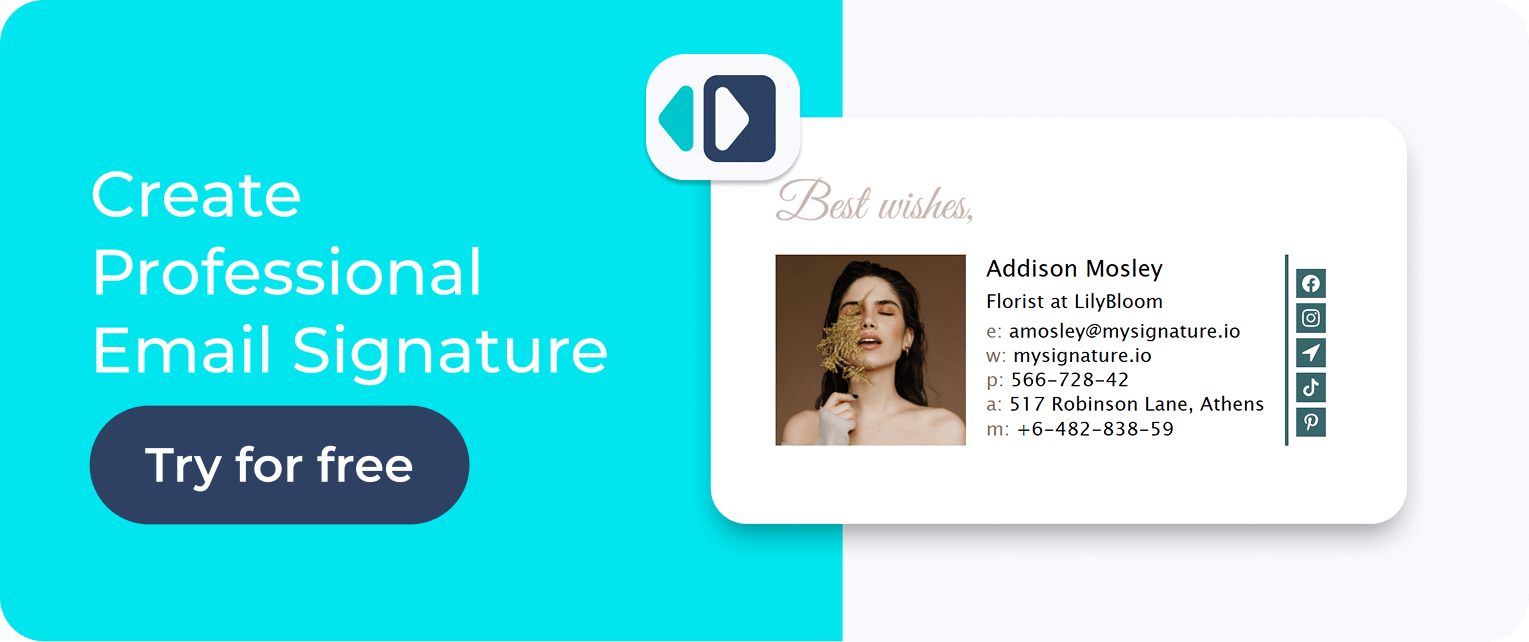
- Work on your personal brand PR
For example, you can write for various magazines and online media in your niche.
- Collaborate with influencers and other blogs
Find the right bloggers, build relationships with them, experiment with content, and people will talk about you.
- Create and attend offline events
While the Internet can truly make dreams a reality, offline strategies remain essential. To achieve success, you need to effectively reach and engage with individuals who may not be online every day to promote your product or service. Using tools like The QR Code Generator (TQRCG), you can easily connect offline audiences to your online content, making your outreach more effective. Educational workshops are one of the most useful events held by influencers. No matter if you are good at arts or fitness, you can always teach your audience something new.
- Create a community around your personal brand
A community of like-minded individuals boosts your reputation and helps attract clients, partners, and new niches. It also facilitates product launches and information sharing. You can build this community in a private Facebook group, a dedicated website, or offline.
Personal brand examples
Billie Eilish
We know Billie as an experimental signer who breaks all the limits and boundaries. Everything she does on the web and offline is on-brand with her personal branding strategy. Billie's music, interviews, website, social media, merch everything is bizarre and experimental. Some may think it's weird to look and act the way Billie does, but the thing is, the singer doesn't do it for hype. Billie wants to show her audience that there is no need to follow the big fashion trends to be cool but to shape your own style in everything.
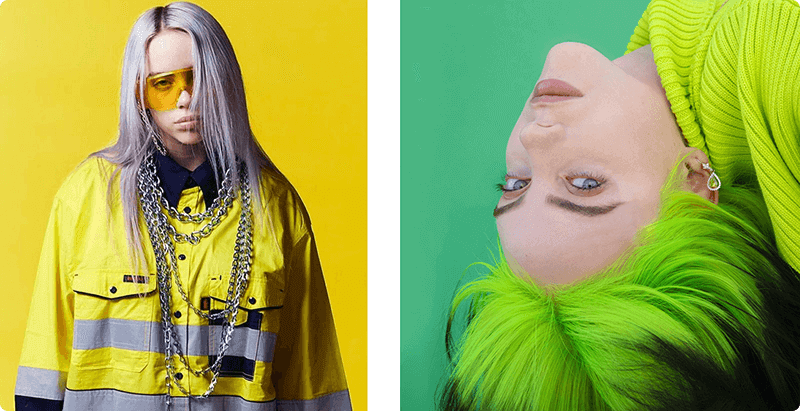
sources: nytimes and tmrwmagazine
Lady Gaga
Lady Gaga has achieved huge success in the music industry very quickly, and much of this is due to her strong brand. Gaga's brand makes her audience feel accepted, understood, and a part of something important.
Besides, she is constantly changing her appearance, but still, unlike most celebrities, Lady Gaga consistently stays in character, with co-stars noting she seems to live in fishnets and heels. While her outrageous outfits attract attention, her magnetic appeal goes beyond her costumes. Besides, she is constantly changing her appearance but still stays Lady Gaga.
Her key message to fans sounds like “Love yourself, free yourself, be whoever you want to be.”
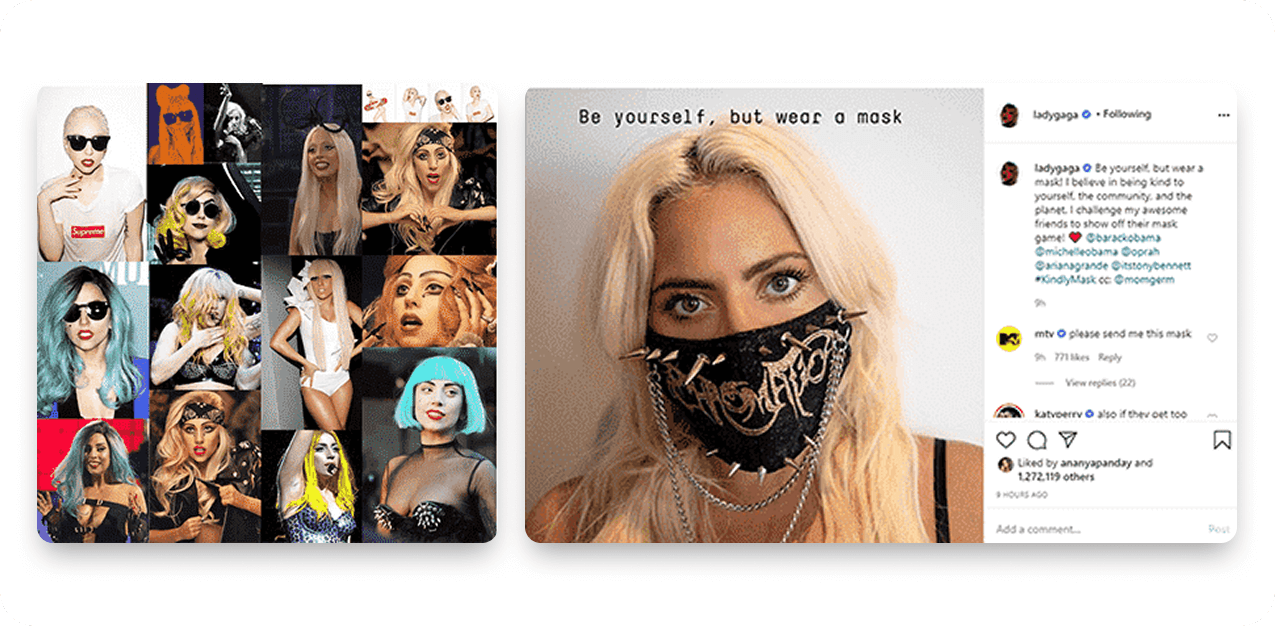
source: deviantart
Oprah Winfrey
When Oprah Winfrey moved from a small town to Chicago to work on the morning show, people said that her difficult nature would not allow her to build a successful career. However, pretty soon, her public image began to take shape. Her style is now based on honesty and empathy, which draws viewers in and sets her personal brand apart from the competition. This woman made herself and turned her unknown name into a brand.
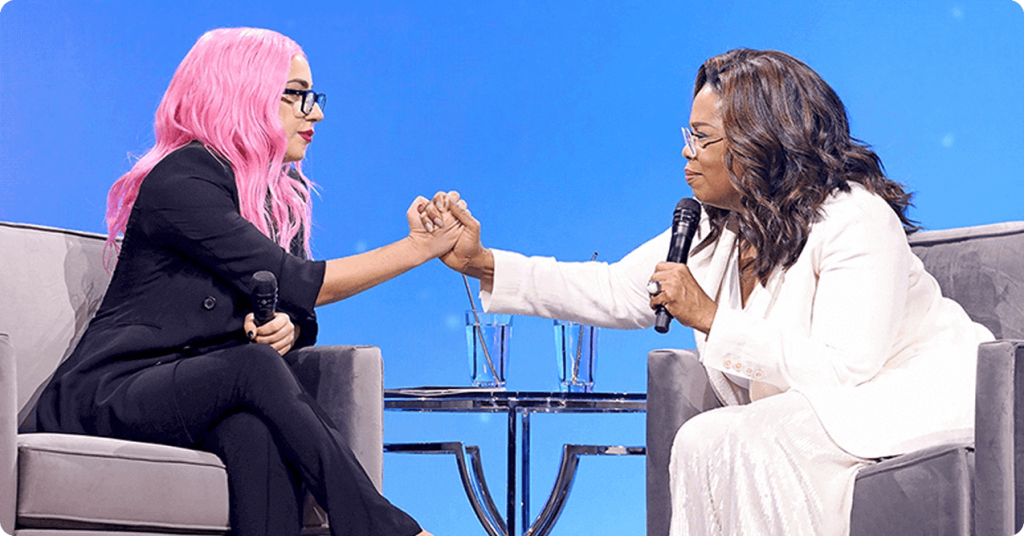
source: weightwatchers
Sarah Jessica Parker
Press and haters often said she was unsexy and ugly, but despite all the attacks, Sarah's character, Carrie Bradshaw, is still more women are striving for strength and independence, inspiring others to do the same. Celebrities convey this message more easily through their looks and style.
But what about those who don't meet beauty standards? Consider Sarah J. Parker. It inspires women of all ages not to give up when everything goes wrong, and not to be afraid to have your own style.
Sarah often admitted to low self-esteem, but she didn't let it hinder her growth. Instead of surrendering, she viewed challenges as opportunities, which may explain why she confidently strolled through NY in pajamas for her famous lingerie shoot.

source: sjpbysarahjessicaparker
Oliver Sykes
Another great example of being true to yourself is Oliver Sykes, frontman of one of the most popular UK rock bands called Bring Me The Horizon.
Oliver, a bold musician, experiments with various genres despite mixed fan reactions. His band’s new songs eventually gain millions of views and attract new fans overnight. On top of that, Oliver is an active advocate for animal and human rights.
In addition to his songwriting and vocal contributions, Oliver also opened a vegan bar in his hometown, became one of PETA's faces (People for the Ethical Treatment of Animals), and launched his clothing line, supporting his personal brand statement of everyone being beautiful in their own way.
He says, “Ever since I've been a kid, I've been able to express myself however I wanted. Whether it be wearing my mother's makeup or covering myself head-to-toe in tattoos, I've just always had that freedom to express myself however I want.”
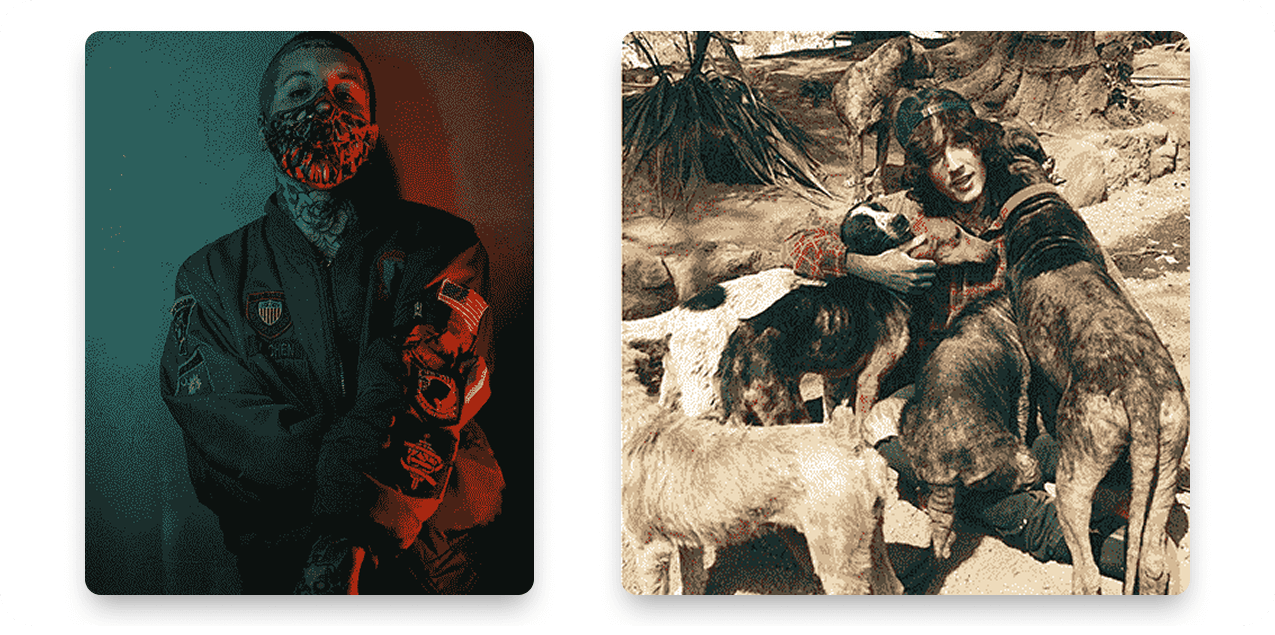
sources: pinterest and instagram
Justin Trudeau
Justin Trudeau is known not just for his politics, but also for his bold sock choices. What started as a quirky style statement soon became a strategic part of his personal brand. A standout moment came in 2017 when he wore rainbow-themed socks with "Eid Mubarak" written on them during Toronto’s Pride Parade. This subtle yet powerful choice highlighted inclusivity, bridging LGBTQ+ and Muslim communities. Trudeau’s socks aren’t just fashion—they're messaging.
This is how Mr. Trudeau hinted at the reconciliation of two important but not quite understanding and accepting groups of the Canadian population.
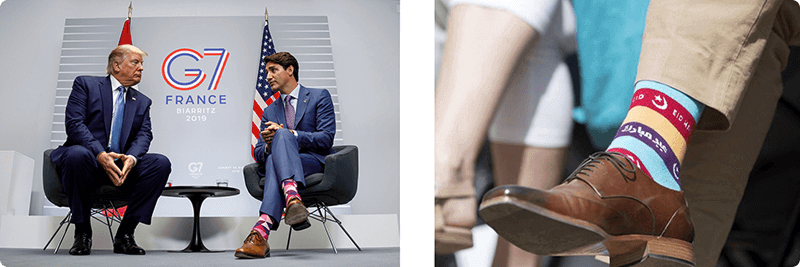
sources: rebelfashion and vogue
Building a personal brand isn’t just for celebrities, influencers, or entrepreneurs — it’s for anyone who wants to stand out in their industry, build trust with an audience, and create new opportunities. Whether you’re a freelancer, business owner, or jobseeker, a strong personal brand can help you establish credibility, attract opportunities, and even command higher prices for your services.

